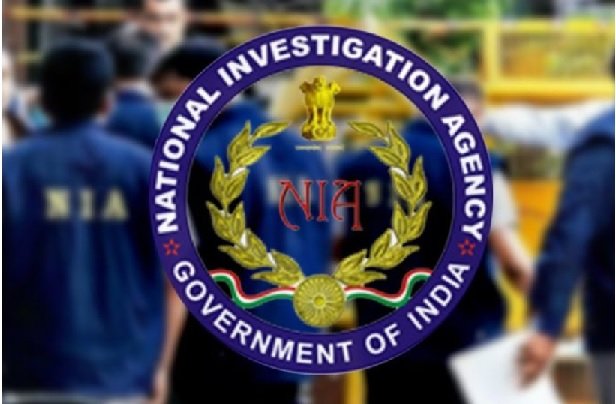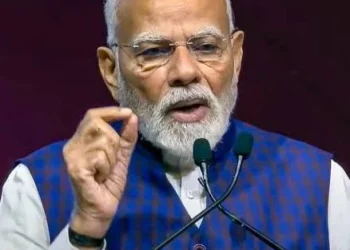In the final part of our five-part series on Thangminlen Mate’s arrest and re-arrest, we examine how the Unlawful Activities (Prevention) Act enables prolonged detention without trial. With no requirement for hard evidence—just a prima facie claim—UAPA’s bail clause is being increasingly questioned by legal experts and rights advocates. Mate’s case exposes the urgent need for reform.
By Navin Upadhyay
July 8, 2025 — The case of Thangminlen Mate, a schoolteacher from the Mate community arrested under the Unlawful Activities (Prevention) Act (UAPA), has reignited national debate over the stringent bail conditions embedded in India’s anti-terror law. As the nation marked the fourth anniversary of Father Stan Swamy’s custodial death, civil society groups and legal experts are once again raising concerns over what they describe as an erosion of civil liberties and due process.
Mate, who was apprehended by the National Investigation Agency (NIA) on May 19, 2025, is being held without bail, based primarily on testimonies from ten Manipur Police Commando personnel—not physical evidence. The charges stem from a violent attack on January 17, 2024, in which heavily armed assailants allegedly linked to Kuki militants targeted a police post in Moreh, killing one IRB rifleman and injuring two others.
The prosecution has invoked Section 16 of the UAPA (punishment for terrorist acts), insisting that Mate is an “influential person” whose release on bail would pose a risk to public safety and compromise witness testimony. Public Prosecutor D. Bharadwaj argued before the Special Court that prima facie evidence exists and emphasized that UAPA’s strict bail provisions—Sections 43D(5) and (6)—apply in full force.
READ: Tribals Show the Way in Manipur, Hill Districts Lead Peace and Justice Index
Citing the recent Supreme Court ruling in Gurwinder Singh v. State of Punjab (2024), Bharadwaj underscored that courts must reject bail applications if any prima facie link between the accused and the alleged offence is found, regardless of the strength of actual evidence.
“The UAPA reverses the traditional jurisprudence that bail is the rule and jail the exception,” Bharadwaj argued. “Here, jail is the rule.”
Mate’s defense, however, contends that his arrest was arbitrary, lacking evidentiary substance, and rooted solely in police testimonies under Section 161 Cr.P.C., which are not admissible as substantive evidence during trial. They allege that no weapon, communication, or material proof links him to the Moreh attack, and that he has no past criminal record.
READ: Land, Autonomy, and Protest: Assam’s Tribals Hold the Key to 2026 Polls
Echoes of Stan Swamy
Mate’s situation has drawn stark parallels to the case of Father Stan Swamy, the 84-year-old Jesuit priest and tribal rights activist who died on July 5, 2021, while in judicial custody under similar UAPA charges. Swamy was arrested in 2020 in connection with the Bhima Koregaon–Elgar Parishad case, accused of Maoist links based on questionable digital evidence and contested documents.
Despite battling Parkinson’s disease, hearing loss, and eventually COVID-19, his multiple bail pleas were repeatedly denied. Courts ruled that “community interest outweighs personal liberty” under UAPA. He died shortly before another scheduled bail hearing, after months of deteriorating health in Taloja Central Jail.
The Mate Case (Part-3): NIA Relies Solely on Manipur Police Claims https://t.co/ynHuYJvgmd #ThangminlenMate #UAPA #MorehArrest #JusticeInManipur #NIA #HumanRights #KukiZo#SupremeCourt #ManipurPolice
— Navin Upadhyay (@Navinupadhya) July 6, 2025
A Law Above Due Process?
Dozens of other similar cases have come to symbolize what critics describe as the draconian spirit of UAPA, especially its bail provision under Section 43D(5), which requires courts to deny bail if they believe the accusations are prima facie true. This threshold is worryingly low, as courts are not required to examine the reliability or sufficiency of evidence—only that such accusations exist.
That means Section 43D(5) transforms bail hearings into rubber-stamp procedures. If an investigating agency invokes UAPA and files a chargesheet, the accused can be locked up indefinitely even before a trial begins. So guilty or innocent, Mate may rot in jail for years to come.
The Supreme Court, while upholding UAPA’s constitutionality, has warned that the “grave consequences” of UAPA demands “judicial circumspection.” However, critics argue that these warnings remain toothless when courts continue to deny bail mechanically.
A Pattern of Prolonged Incarceration
Dozens of undertrial prisoners—activists, academics, students, and community leaders—remain in jail under UAPA with no convictions, some for over five years. The Human Rights Watch and UN Special Rapporteurs have flagged these trends as violations of India’s constitutional protections and international human rights obligations.
In many cases, including those of Sudha Bharadwaj, Gautam Navlakha, and G.N. Saibaba, the prosecution’s case relies on questionable digital forensics, confessions under duress, or testimonies without cross-examination.
Civil liberties lawyers argue for a return to the foundational principle that an accused is innocent until proven guilty, and that preventive detention should not become a substitute for conviction.
A Law That Tilts the Scales: Bail Conditions in Mate Case
In Mr. Thangminlen Mate’s bail hearing, the prosecution relied heavily on the strict bail conditions under Section 43D(5) and (6) of the UAPA, which place an almost insurmountable hurdle before any accused seeking bail under the Act. Public Prosecutor D. Bharadwaj argued that the Supreme Court’s ruling in Gurwinder Singh vs State of Punjab (2024) made it explicitly clear that courts must reject bail applications if there are reasonable grounds to believe the allegations are prima facie true.
READ: Burnt Homes, Broken Trust: Manipur’s Unrealistic Relief Plan
The prosecution asserted:
- The phrase “shall not be released” in Section 43D(5) UAPA stands in stark contrast to “may be released” in ordinary bail provisions under CrPC, reflecting the legislature’s intent to make denial of bail the norm, not the exception.
- Under UAPA, the court’s role is not to weigh the evidence thoroughly as in a full trial, but to simply assess whether prima facie allegations exist, even if based solely on police statements under Section 161 CrPC.
- The prosecution emphasized that general bail principles, like “bail is the rule, jail is the exception”, do not apply in UAPA cases. Instead, jail becomes the rule by legislative design.
- The bail test under UAPA is “highly restrictive in scope”, requiring courts to first reject bail on prima facie grounds, before even considering the standard tripod test of flight risk, witness tampering, or evidence destruction.
In Mate’s case, although no material evidence was presented, and the prosecution’s case rested on police testimonies alone, Bharadwaj maintained that this met the “low threshold” of prima facie truth needed to trigger the bar on bail.
As Mate’s case proceeds through the courts, it may yet become another milestone in India’s ongoing struggle between security and liberty, and law and justice.














